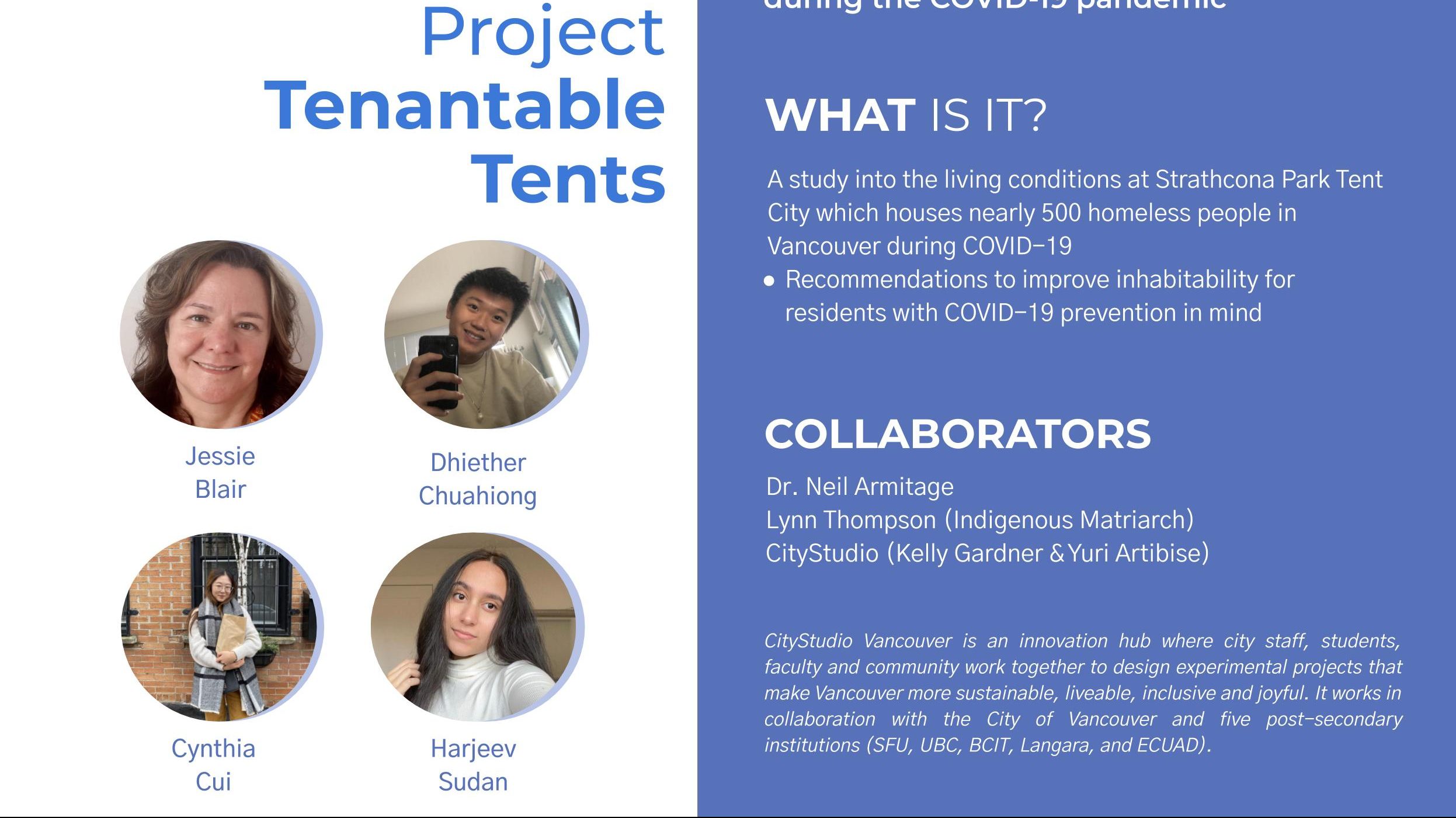

At around 2 a.m. in mid-October 2020, UBC Sociology undergraduate student Harjeev Sudan was slouched on her bed, her eyes glued to her laptop screen, as she combed the internet for media reports on Strathcona Park.
The SOCI 361 student was catching up on her group thesis project about making Strathcona park more inclusive for BIPOC communities. She was hurrying through her research since her group only had a week to submit the project proposal before the deadline. But then she stumbled upon a recent development that made her reevaluate their proposal: Scores of people were trickling in the homeless encampment, which had been set up in the park a few months ago.
After discussing it extensively with her group and her course instructor Dr. Neil Armitage, the group changed the topic to tackle the problems homeless people were experiencing in Strathcona Park, which included a lack of amenities to support the population during COVID-19. Months later, their project was awarded the City Studio People’s Choice Award in December 2020.
When the group changed the project topic, their actions were supercharged with a newfound purpose.
As time passed, the number of people in the park grew to 500. The group directed their focus on recommending the improvement of living conditions for the homeless in the park before the government rehabilitated them. That included installing heating systems, hand-washing stations, showers, bathrooms, and supplying medical and non-medical masks in the tents.
Dhiether Chuahiong, an international student from the Philippines and group member, says to win the cooperation and participation of those in the encampment, making them feel safe and accepted in the community is paramount.
After speaking with Indigenous matriarch Lynn Thompson, the group also noticed how the lack of communication between homeless people, the residents and the state officials led the situation into a stalemate. Therefore, the group recommended the creation of First-Nations-inspired talking circles through which concerns of everyone involved in the matter could be heard and acknowledged. The process could subsequently be used for developing solutions for the community as well.
“We didn’t want the people involved to be a passive entity in the discourse, We wanted to make sure that we’re not doing something to anybody, or we’re not doing something for the benefit of anybody without consulting them,” Sudan says.
Dr. Neil Armitage, the group’s course instructor, says he was impressed by the fact that the group wasn’t working on project merely to earn their grade. Instead, they were driven by a purpose, a mission, that allowed them to plough through the impediments of online learning and Covid-19. “Many times, students come in the class thinking they need to get a good grade. But the key is that you come in with a really clear idea and work hard on something which takes on a life of its own, and then you don’t need to worry about the grade. And that’s what’s so refreshing about this group.”
“It’s not a matter of making something permanent and creating a permanent nuisance for the people living in the area.I just want to emphasize that no matter who is living in what condition, their experience deserves to be dignified, and at least meet the basic human rights.”
Eventually, the group was selected to present at the Hubbub conference hosted by CityStudio Vancouver, a body founded by SFU and the City of Vancouver. The annual conference has students from various schools present projects aimed at improving the living conditions of the city’s residents.
Group member Cynthia Cui says she was thrilled when the group was selected to present at the Hubbub conference, but the experience was equally nerve-racking.
The group ploughed through the questioning round and even got a chance to present their project to UBC President Santa Ono and City of Vancouver mayor Kennedy Stuart. Cui says she and the group were thrilled when they won the People’s Choice award because their project had earned the support of Vancouver’s residents.
Sudan says they are not done yet. One of the members of the city staff reached out to the group and said that they might have a chance at presenting to the City of Vancouver’s Planning Commission.
What matters most, Sudan says, is that the “project is translated into action … We as a group, definitely want to continue having a part in making sure that our project doesn’t end up being one of those things that dies off after a period of interest. And so our goal as a group is to continue to deal with these issues.”


